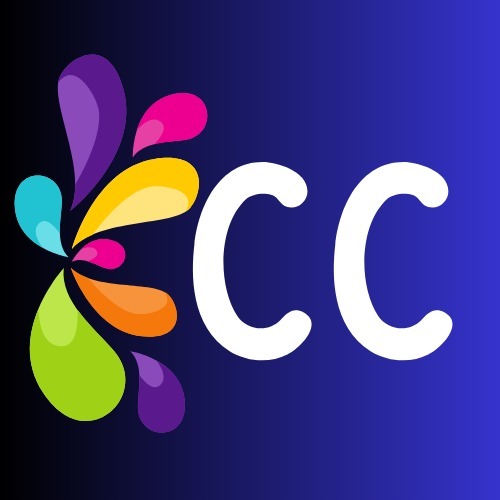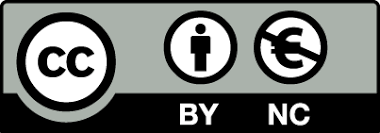Terms and Conditions (Including Some Suggestive Parameters)

Authors are required to carefully review the following Terms and Conditions before submitting their manuscripts to Creation and Criticism.
1. Submission Policy
- By submitting a manuscript, authors confirm that the work is original, has not been previously published, and is not under consideration for publication elsewhere.
- The journal does not accept simultaneous submissions.
- Submissions must align with the journal’s aims and scope as outlined on the official website.
2. Manuscript Formatting
- Authors must prepare their final manuscript following the formatting guidelines provided by Creation and Criticism.
- Submissions that do not adhere to the prescribed format may be returned for revisions before being considered for review.
3. Copyright and Licensing
- Authors retain the copyright to their work.
- All published works in Creation and Criticism are licensed under a Creative Commons Attribution-NonCommercial 4.0 International License (CC BY-NC 4.0), allowing others to share the content for non-commercial purposes with appropriate attribution.
4. Permissions and Ethical Compliance
- Authors are responsible for obtaining permissions for any copyrighted material, including images, tables, diagrams, and extensive quotations, before submission.
- The journal strictly adheres to ethical publishing practices. Plagiarism, data fabrication, falsification, or redundant publication will not be tolerated and may lead to rejection or retraction of the published work.
- Authors must disclose any potential conflicts of interest.
5. Plagiarism and Copyright Infringement
- Authors must ensure that their work is free from plagiarism and copyright violations.
- In case of copyright infringement, the sole responsibility lies with the author(s). The publisher of Creation and Criticism shall not be held liable for such violations.
6. Archiving and Digital Preservation
- The journal follows open-access policies and allows the archiving of published content under CC BY-NC 4.0 for academic and non-commercial purposes.
- The journal ensures long-term digital preservation of published articles through indexing in recognized repositories.
7. Publication Ethics and Open Access Policy
- Creation and Criticism follows the COPE (Committee on Publication Ethics) guidelines to maintain high ethical standards in publishing.
- The journal operates on a Diamond Open Access model, meaning no subscription or access fees are charged.
- There are no submission or publication fees for authors.
8. Editorial Rights and Policy Changes
- The editorial board reserves the right to make necessary editorial modifications to improve clarity, coherence, and formatting.
- Creation and Criticism reserves the right to update or modify these terms and conditions at any time without prior notice.
- By submitting to Creation and Criticism, authors acknowledge that they have read, understood, and agreed to these terms and conditions.
9. Subject Areas
Creation and Criticism publishes high-quality scholarly and creative works across a broad spectrum of English language and literature. The core subject areas include:
- Language Studies
- Communication Studies
- English Literature (Classical to Contemporary)
- Literary Theory and Criticism
- Comparative Literature and World Literatures
- Cultural Studies and Interdisciplinary Approaches
- Postcolonial, Feminist, Marxist, Psychoanalytic, and Eco-Critical Studies
- Creative Writing (Poetry, Short Fiction, Plays)
- Book Reviews and Author Interviews
- Emerging Trends in Literature, Media, and Culture
10. Publishing Timeline
- Creation and Criticism is a quarterly e-journal, published four times a year: January, April, July, and October.
- Submissions are accepted throughout the year and undergo a rigorous peer-review process.
- Authors are generally notified of the initial editorial decision within 6–8 weeks of submission.
- Accepted works are published in the upcoming issue according to the quarterly schedule.
11. Acceptance Rate
The journal maintains a high standard of academic and creative quality through a selective review process. On average, only 20% of submitted research articles and creative works are accepted for publication after peer review. This reflects the journal’s commitment to originality, scholarly rigor, and literary excellence.
12. Conflict of Interest Disclosure
Authors are required to disclose any financial, personal, or professional relationships that could be construed as influencing the content of their submitted work. Potential conflicts of interest may include, but are not limited to:
- Financial support or funding for the research.
- Personal relationships or academic competition.
- Employment, consultancies, or honoraria.
A disclosure statement must be included at the time of submission. If there are no conflicts to declare, authors should state: “The author(s) declare no conflict of interest.”
13. AI-Generated Content Policy
The journal acknowledges the growing role of Artificial Intelligence (AI) in academic and creative work. To ensure academic integrity:
- Authors must clearly disclose any use of AI tools (e.g., for language editing, data analysis, or text generation) in their manuscripts.
- AI cannot be listed as an author; responsibility for the content remains solely with the human contributor(s).
- Manuscripts where AI-generated text or creative work is used without disclosure may be rejected or retracted.
- The editorial team reserves the right to screen submissions for undisclosed AI-generated content.
14. Self-Citation Score
To maintain fairness and avoid citation manipulation, authors should limit self-citation to no more than 15% of the total references in their submitted manuscripts. Excessive self-citations may be flagged during the review process and may affect editorial decisions.
15. Total Citation Rate
As per Google Scholar records, Creation and Criticism currently has a total of 3 citations across published works. This reflects the journal’s early but growing presence in the global scholarly community.
16. Cite Score
Based on Google Scholar metrics:
- Total Citations: 3
- h-index: 1
The journal is committed to enhancing its scholarly impact by publishing high-quality, peer-reviewed work and by expanding its indexing and visibility in leading academic databases.


